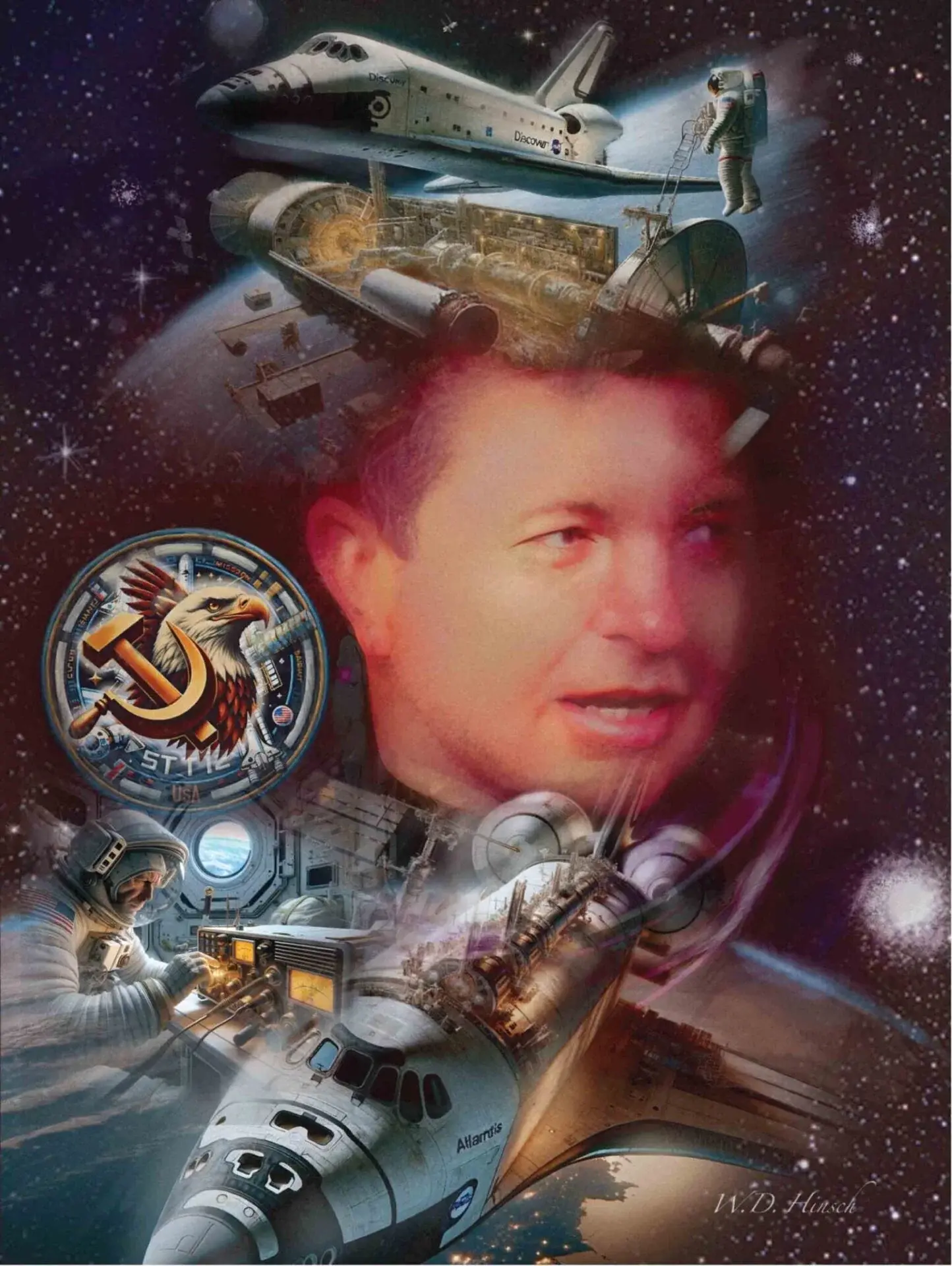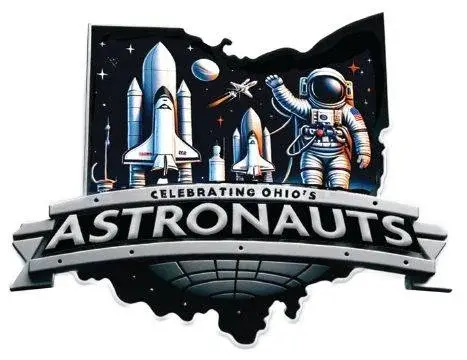
Kenneth Cameron
By William D.Hinsch
Kenneth Cameron
Kenneth Cameron, a visionary in space exploration, epitomizes the journey from earthly soldier to cosmic diplomat. His life, an odyssey from the battlegrounds of Vietnam to the frontier of space, underlines a profound transition: from the competition of the Cold War to the collaboration in space. Cameron’s tale is a testament to the power of curiosity and education, proving that a soldier’s discipline and an astronaut’s dream
can coalesce into a legacy that transcends borders, both terrestrial and celestial.”
Kenneth Cameron, a native of Cleveland, Ohio, and a graduate of Rocky River High School, is a distinguished astronaut whose career encapsulates the spirit of international cooperation and scientific advancement in the post-Cold War era. Before venturing into space, Cameron’s path was marked by service and education. He enlisted in the U.S. Marine Corps during the Vietnam Conflict in 1969, where he demonstrated remarkable dedication and skill, later earning prestigious military honors including the Legion of Merit and Distinguished Flying Crosses.
Cameron’s academic journey was equally impressive. He returned to the Massachusetts Institute of Technology (MIT) after his military service, earning a Bachelor of Science in aeronautics and astronautics. His time at MIT was pivotal, as it solidified his aspiration to become an astronaut, inspired by the likes of Alan Shepard and John Glenn. He furthered his studies with a Master of Science degree and honed his skills as a test pilot, leading to his selection by NASA in 1984.
His tenure at NASA was marked by significant contributions to various projects, including the tethered satellite payload and Shuttle Avionics Integration Laboratory. The Challenger disaster in 1985 deeply impacted Cameron, who knew the astronauts personally, reinforcing his resolve for safe space exploration.

